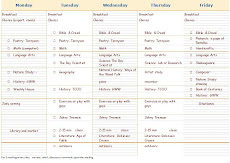classify: Into what general category/categories does this idea belong?
compare: What are the similarities among these ideas? What are the differences?
contrast: What are the differences between these ideas?
critique: What are the strengths and weaknesses of this idea?
define: What does this word or phrase mean?
describe: What are the important characteristics or features of this idea?
evaluate: What are the arguments for and against this idea? Which arguments are stronger?
explain: Why is this the case?
identify: What is this idea? What is its name?
interpret: What does this idea mean? Why is it important?
justify: Why is this correct? Why is this true?
outline: What are the main points and essential details?
summarize: Briefly, what are the important ideas?
trace: What is the sequence of ideas or order of events?
Another take:
Boring, I know -- yawn.The following words are commonly found in essay test questions. Understanding them is essential to success on these kinds of questions. Study this sheet thoroughly. Know these words backwards and forwards.
- ANALYZE: Break into separate parts and discuss, examine, or interpret each part.
- COMPARE: Examine two or more things. Identify similarities and differences. Comparisons generally ask for similarities morethan differences. (See Contrast.)
- CONTRAST: Show differences. Set in opposition.
- CRITICIZE: Make judgements. Evaluate comparative worth. Criticism often involves analysis.
- DEFINE: Give the meaning; usually a meaning specific to the course of subject. Determine the precise limits of the term to be defined. Explain the exact meaning. Definitions are usually short.
- DESCRIBE: Give a detailed account. Make a picture with words. List characteristics, qualities and parts.
- DISCUSS: Consider and debate or argue the pros and cons of an issue. Write about any conflict. Compare and contrast.
- ENUMERATE: List several ideas, aspects, events, things, qualities, reasons, etc.
- EVALUATE: Give your opinion or cite the opinion of an expert. Include evidence to support the evaluation.
- ILLUSTRATE: Give concrete examples. Explain clearly by using comparisons or examples.
- INTERPRET: Comment upon, give examples, describe relationships. Explain the meaning. Describe, then evaluate.
- OUTLINE: Describe main ideas, characteristics, or events. (Does not necessarily mean *write a Roman numeral/letter outline*.)
- PROVE: Support with facts (especially facts presented in class or in the test).
- STATE: Explain precisely.
- SUMMARIZE: Give a brief, condensed account. Include conclusions. Avoid unnecessary details.
- TRACE: Show the order of events or progress of a subject or event.
But I do think I learned a lot from writing essay exams in high school -- it occured to me that these types of imperative verbs could be used as forms of narration.
Here also are Narration Ideas from Simply Charlotte Mason.
There are some thoughts on Narration at AO.
A post about literary analysis and narration.Over the years we used many different narration techniques. Narration, to me, is similar to a 'workout' - you emphasize different muscles at different times.
In the early years, the habit of attention is the main goal. Children learn to train their minds to interact with the material, not to look out the window, think about what's going to happen after school, or poke their sibling :-) My child might not always get out of the reading what I would have gotten out of it - and they might even miss the three or four points I would like them to know, but they are learning the habit of attention. Learning a few random facts may make them sound 'educated' but they will be ill-equipped in the discipline of self-education for the work ahead that requires serious concentration and attention.



No comments:
Post a Comment